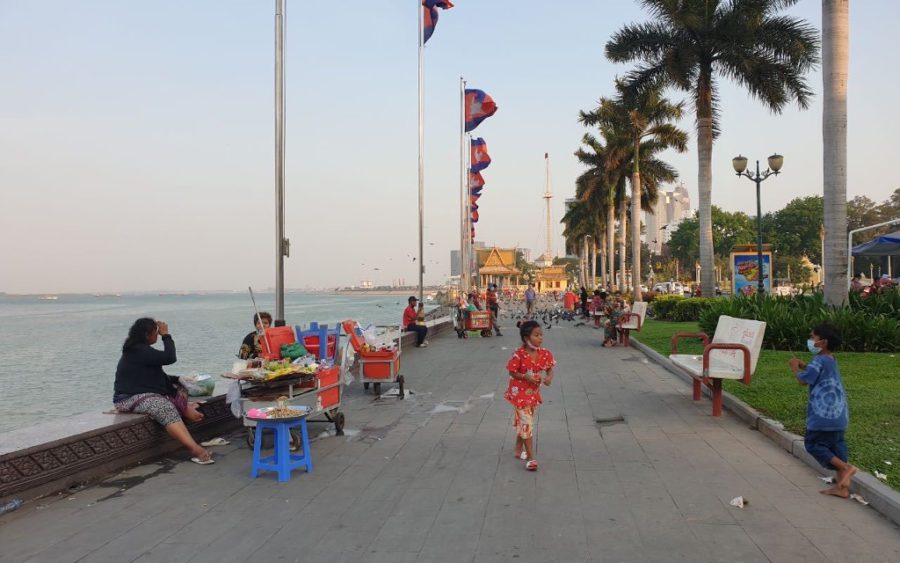An 8 p.m. curfew announced Thursday by the Phnom Penh municipality will apply to anyone out on the city’s streets — whether on foot or motorbike, governor Khuong Sreng said.
“Could you define ‘traffic’? Even crawling is traffic. Walking is also banned,” Sreng told VOD. “Our decision is about preventing the spread of Covid-19, and walking can lead to transmission too, not just riding motorbikes. So we need to do our work.”
In a statement issued earlier Thursday, Sreng said restaurants, cafes and bars cannot have customers from 8 p.m. through 5 a.m., though they can pack food for delivery. Road traffic is banned during the same hours except for health emergencies, commutes for workers, delivery services and official work such as the fire service. People can only gather at night with co-inhabitants within their residences.
The measures apply through April 14, and violations can be punished under the Covid-19 Law, which sets out jail terms for infractions.
“Traffic can mean moving forward or backward,” Sreng added.
In an audio message sent to district governors as well as police and military police, which was published by government-aligned Fresh News and other local outlets, Sreng said motorbikes and cars would be confiscated from violators, and they would also be fined.
“Ask them to quarantine at home and after 14 days they can ask to have their property back,” he added.
Tuk-tuk drivers, vendors and homeless people on Phnom Penh’s Riverside said they were concerned for their subsistence.
“I sleep all over the place,” said one homeless woman who declined to give her name. “We do not know what to do since we don’t have a place to go. We can have a place to sleep only if we have money.”
She said she was not worried about authorities arresting or detaining her since she was already used to that.
Soeun, a tuk-tuk driver for PassApp who would only give his first name, said losing nighttime earnings would be a big hit on his finances; he could often earn $5 in one night.
“We have to pay rent, pay for the PassApp [vehicle] mortgage, microfinance [debt],” Soeun said. “We do not know what we should do now, since we don’t have social security.”
Chan Samnang, a beverage vendor originally from Svay Rieng province, said Riverside was already quiet, and many sellers had given up.
Many were afraid of getting Covid-19, but they also struggled with bills and felt they had no option but to continue working, she said.
“This will be the end for our businesses,” Samnang said. “Since the ‘February 20’ outbreak, we are penniless, and we have microfinance [loans] we’ve borrowed to support our families.”
“Even if we cry out and speak, nobody can help us.”













